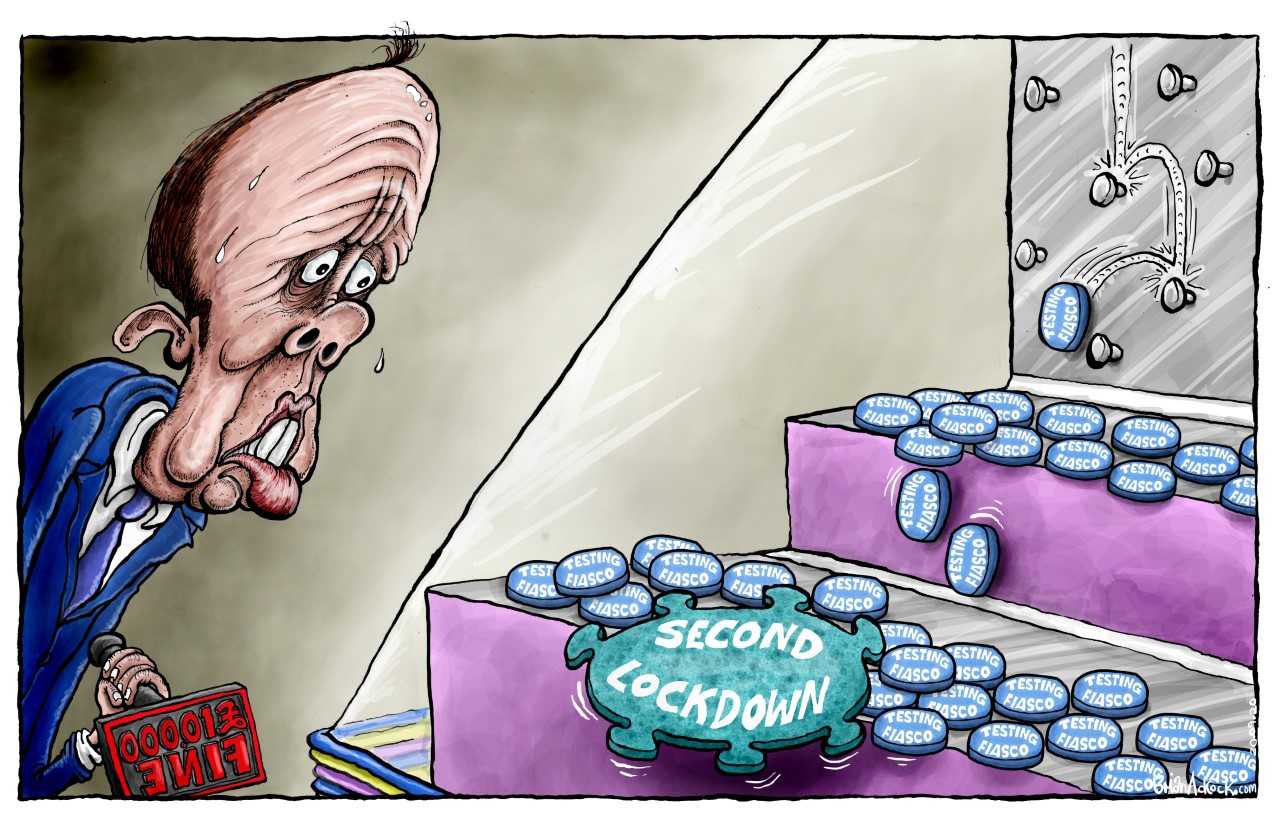The government’s fines for breaching self-isolation won’t rebuild trust
Editorial: The emphasis should have been on the other part of the prime minister’s announcement – a £500 payment for those on low incomes who have to isolate

Boris Johnson stole the Sunday coronavirus headlines with his announcement of fines of “up to £10,000” for people in England who fail to self-isolate when asked to do so. However, this punitive approach is counterproductive. He may succeed in frightening a few people who are generally following the government’s advice but who might be tempted to nip out to the shops for something they have forgotten. But he will put other people off getting a test for fear of enduring a draconian quarantine.
The announcement was all spin and mirrors in any case. The fine for an initial breach is £1,000, rising to a maximum of the headline figure after repeat offences. There are problems with enforcement, which is most likely to depend on a “sneak culture” that the prime minister condemned out of the other side of his face last week.
That is not the only way in which the announcement sends mixed messages. Mr Johnson has made much of “good solid British common sense”, and he was right to do so. The best way to build confidence in the government is for ministers to take the British people into their confidence, to set out the evidence and to trust in the sense of responsibility of the vast majority. Persuasion rather than coercion is the way to build trust – and rebuilding public trust in his government is something Mr Johnson urgently needs to do.
Of course, there will always be a tiny minority of people who will flout the rules, and an even smaller minority who sincerely believe not only that the virus is harmless but that the rules are an affront to fundamental liberties. Some level of enforcement is necessary, but the emphasis on the policy of swingeing fines is the wrong one.
The emphasis should have been on the other part of the prime minister’s announcement, of a £500 payment for those on low incomes who have to isolate and who cannot work from home. That is something for which The Independent has long argued. For many middle-class families, staying at home and ordering food deliveries online for two weeks is no great hardship, but there are people in low-paid, insecure jobs for whom strict observance of the rules is a struggle. If the £500 had been the headline it would have been a positive, supportive message, rewarding people for doing the right thing rather than punishing them for the opposite.
Rather than frightening people with the prospect of a “second wave” of the virus, requiring a second lockdown, the prime minister should be setting out the facts and sharing with people the tough choices that he believes are necessary to avoid them. He should be straight with people that another wave of coronavirus deaths is unlikely on anything like the scale of March and April, but that no one can be sure, and that proportionate measures to limit the spread of the virus are warranted now.
That means asking people to trust the judgements of the government’s scientific advisers, but it also means a test, trace and isolate system that actually has the capacity to monitor enough people. That means, in turn, being honest with people about giving certain groups priority for tests as long as the demand for tests exceeds supply.
Above all, however, the prime minister must remember that openness and persuasion rather than coercion and fear are the best way to rebuild the trust he needs in his government’s ability to manage this crisis.
Join our commenting forum
Join thought-provoking conversations, follow other Independent readers and see their replies
Comments


Bookmark popover
Removed from bookmarks